By Francis Ametepey

YRE - alumni
Education plays an essential role in building the adaptation and mitigation capacities of communities and nations. Dealing with the wellbeing of all three dimensions of sustainability - environment, society and economy -ESD promotes efforts to rethink educational programmes and systems (both methods and contents) that seek to build sustainable societies.
Quality education designed with the purpose of empowering young people to address ecological, social, economic and cultural issues is crucial in preparing communities for a sustainable future.Globally, education has been acknowledged as an essential tool for achieving sustainability; however the kind of education is key hence the need for Education for Sustainable Development (ESD).
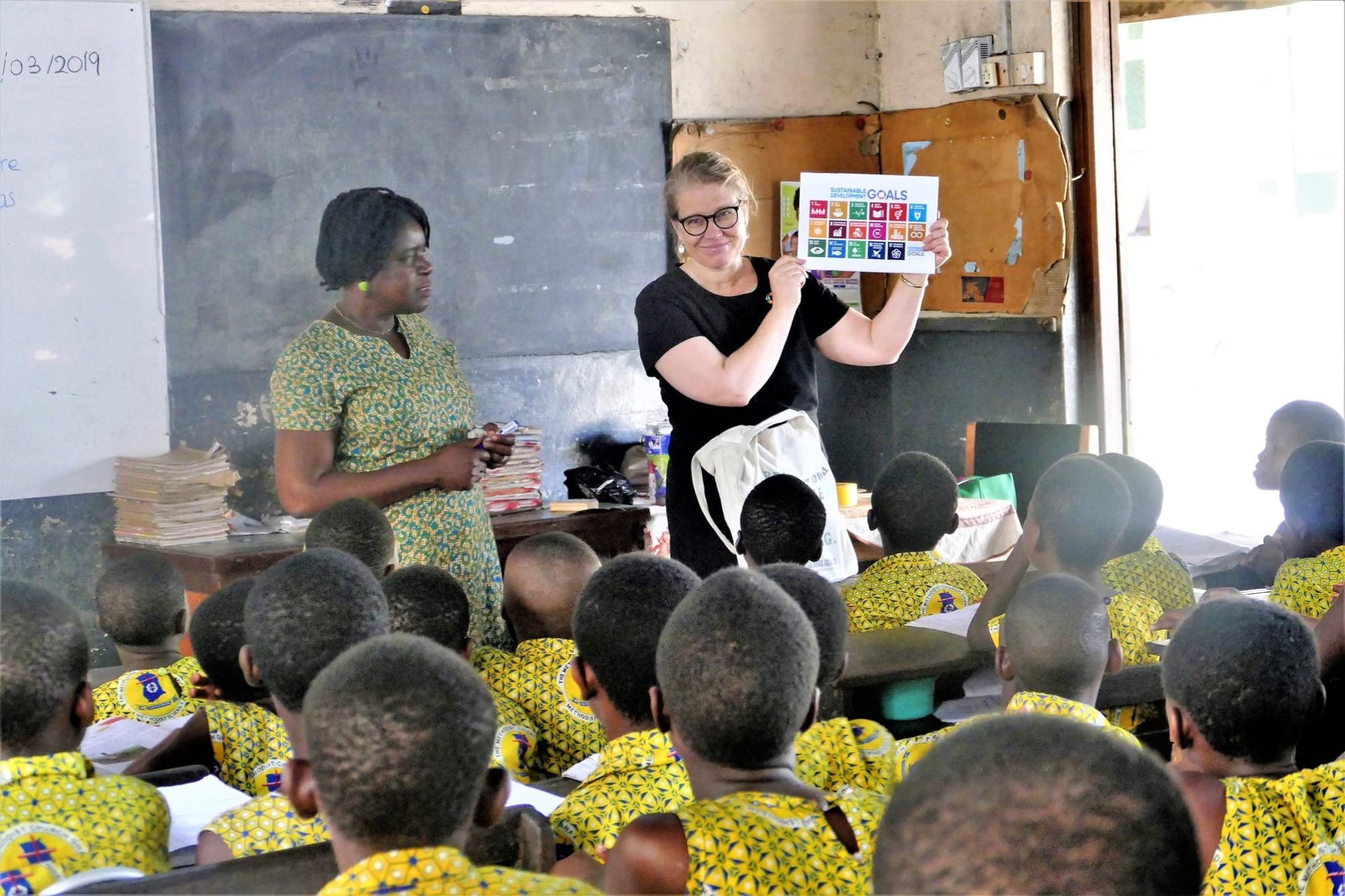
While fostering sustainable development through the education system, the ESD simultaneously applies an equitable sustainability approach for the whole of society, including vulnerable groups, public institutions, the business community, civil society, institutional and legal frameworks, and public awareness-raising.
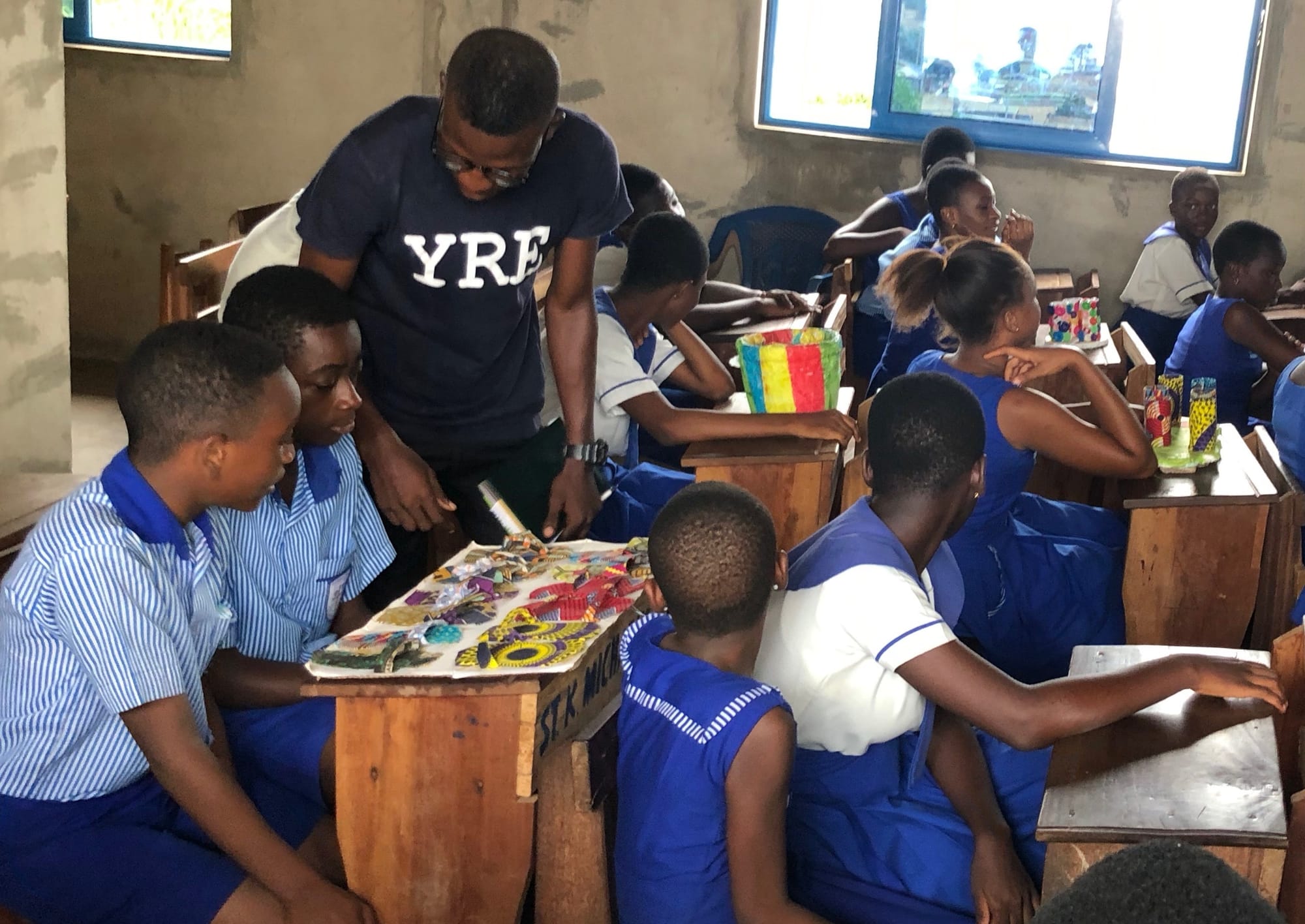
As a Young Reporter for the Environment who has benefited from UNESCO GAP PN4 flagship project as ESD young leader in 2018, I have come to realize the importance of placing sustainability at the heart of education. ESD is recognized as the only tool to drive Sustainable Development worldwide. The good news is that the proposed set of UN Sustainable Development Goals, which was adopted in 2015 to underpin global efforts for the next 15 years from 2016, reflected ESD explicitly in the recognition on Goal 4 target 4.7. together with Global Citizenship Education. Likewise, Article 6 of the United Nations Framework Convention on Climate Change (UNFCCC) stipulates that education, training, and public awareness on climate change must be pursued.
According to Brundtland Commission’s definition "Sustainable development is development that meets the needs of the present without compromising the ability of future generations to meet their own needs" Sustainable development is generally thought to have three components: environment, society, and economy. The well-being of these three areas is intertwined, not separate. For example, a healthy, prosperous society relies on a healthy environment to provide food and resources, safe drinking water, and clean air for its citizens.
Education about sustainable development means educations that create an awareness lesson or theoretical discussion while Education for sustainable development is the use of education as a tool to achieve sustainability. ESD allows every human being to acquire the knowledge, skills, attitudes and values necessary to shape a sustainable future. ESD is all about empowering learners of all ages to become proactive contributors to a more just, peaceful, tolerant, inclusive and sustainable world.

As stated by Kofi Annan, former Secretary General of UN “Our biggest challenge is to ¨put sustainability into the very heart of education” makes it relevant not to focus on the content and the outcome of what is learned but how to utilise the skills, values and attitudes in addressing global challenges. In the recognition of the importance of ESD, the United Nation’s General Assembly declared 2005-2014 as the UN decade of Education for Sustainable Development spearheaded by UNESCO. This has made ESD very important as it emphasizes the crucial role it plays for all the other 16 SDGs towards national development. This is because ESD is an essential contribution to all efforts to achieve the SDGs, enabling individual to contribute to sustainable development by promoting societal, economic and political change as well as transforming their own behaviour. Teachers are drivers of promoting the ESD in schools and must be trained on the SDGs and ESD in their teacher training schools. This must reflect in their educational curriculum with more backings from The ministry of education. For instance in Ghana, The Ghana Education Service can adopt this framework in the educational curriculum of the teacher training institutions. This will help teachers identify the linkages between the goals and the subject they are teaching.

To succeed in the SDGs implementation, policymakers, stakeholders and young people must recognize that today’s global imperatives- to eradicate poverty and improve wellbeing, while restoring the Earth’s balance -form a single agenda, and that the most effective means of achieving it is education. A strong education system broadens access to opportunities, improves health, and strengthens the resilience of communities – all the while fueling economic growth in a way that can reinforce and accelerate development. Moreover, ESD provides the skills people need to thrive in the new sustainable economy, working in areas such as renewable energy, smart agriculture, forest rehabilitation, the design of resource-efficient cities, and sound management of healthy ecosystems. Center for Sustainable Transformation (CeST) currently runs two ESD programs in Ghana; Young Reporters for Environment and Eco-Schools.
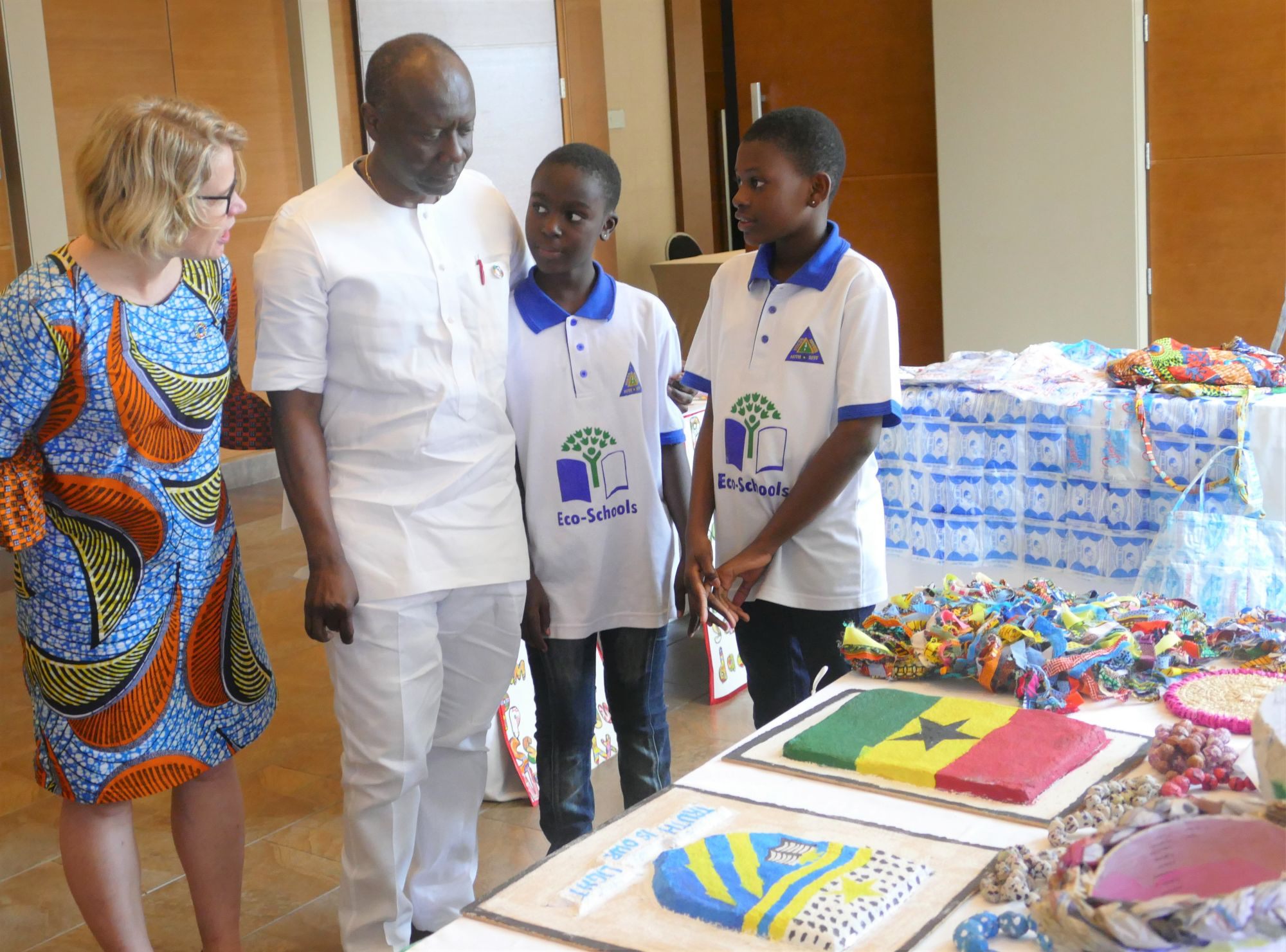 | 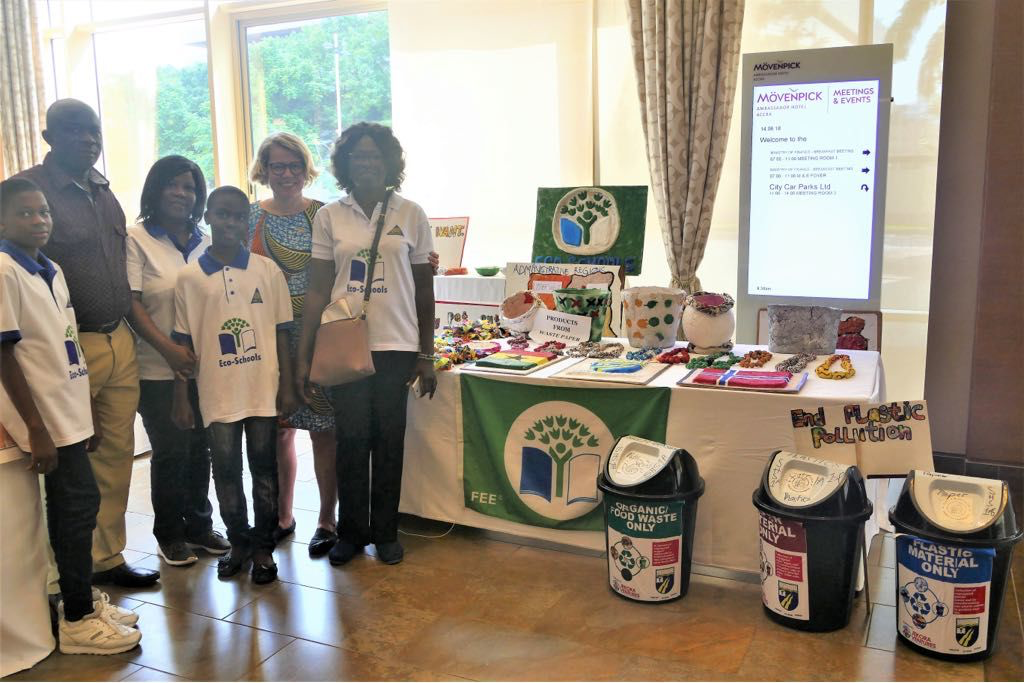 |
Young Reporters for the Environment program is one of the educational program of high quality standard that encourages students to investigate on any specific environmental issue in their community, propose solutions and articulate their findings through the medium of writing, photography and video as a way of building students and young people capacities while in school. Students also get international platforms to showcase their articles on any environmental- related topics and relate it to the adopted 17 goals of the SDGs. This is done yearly through YRE-competition. Schools, however, can nurture a new generation of environmentally savy citizens to support the transition to a prosperous and sustainable future.
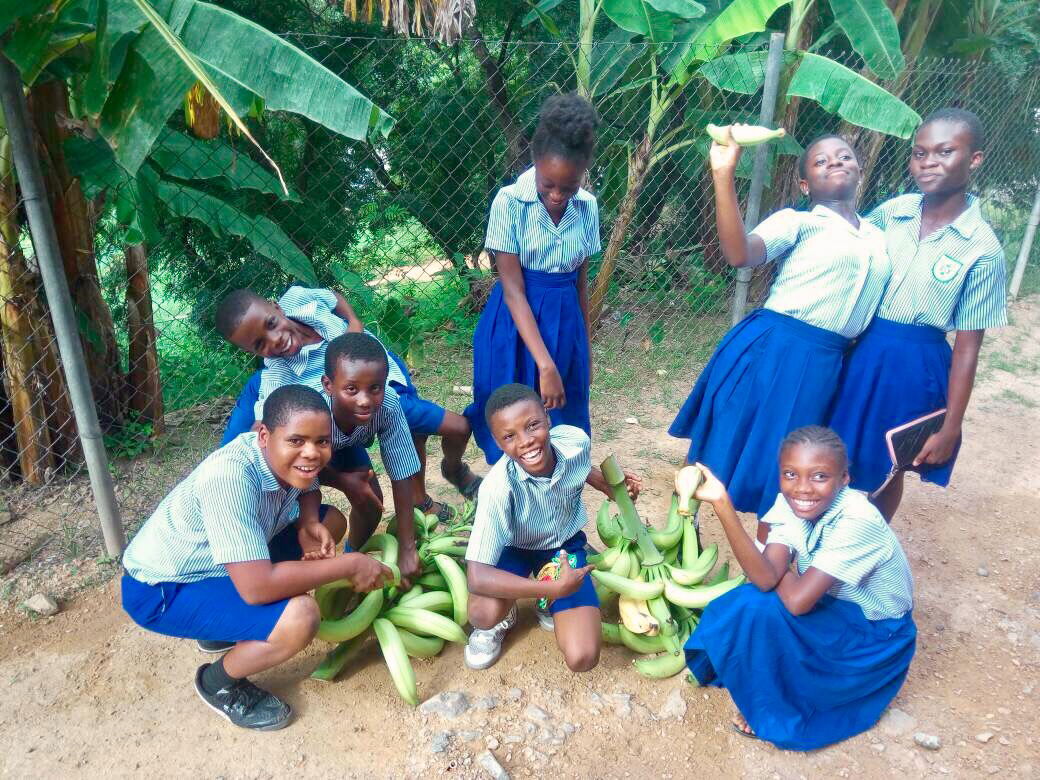
The sister program, Eco-Schools Ghana, has proven to be an effective tool for increasing environmental knowledge and the engagement of pupils, teachers and parents in local environmental issues, and associated behavioral change. Eco-Schools Ghana provide framework and standards to help educators integrate sustainability principles throughout their schools. It offers the methodological tools for schools and communities to evaluate their own challenges assess risks and develop the solutions. The schools are guided to re-orientate existing curricula around sustainable development themes, and work collaboratively with their local communities to develop practical projects. We use practical oriented approach to teach SDGs in the class room while contributing to it implementation process. Some schools are already becoming learning labs for sustainable development, where young students are being prepared to adapt to and help mitigate the consequences of climate change. Akosombo international school in the eastern region of the republic of Ghana, one of the piloted areas of Eco-Schools programme has proven to build generations that re-use papers to produce necklaces, cards for learning etc.
Now the children are able to participate in activities that help to protect the environment, such as sorting of waste, composting or the creation of an endemic garden. As they take part in these daily activities, the children understand better how to actively protect the environment. The eco-schools programme is every important opportunity for children and young people in school to share common plastic waste management solutions and address many similar challenges that needs collective action in their schools and communities.
 |  | 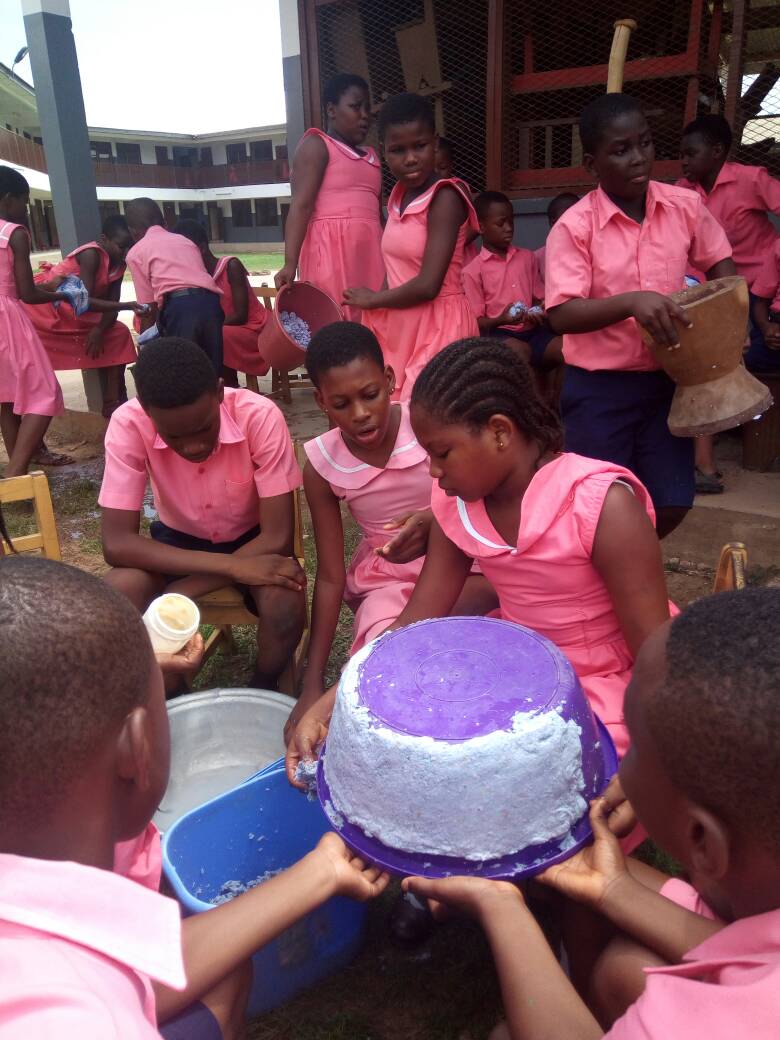 |  |
All in all, Education for Sustainable Development plays an important role in achieving the UN sustainable Development Goals as it practically build and empower students to predict and find solutions to future challenges.